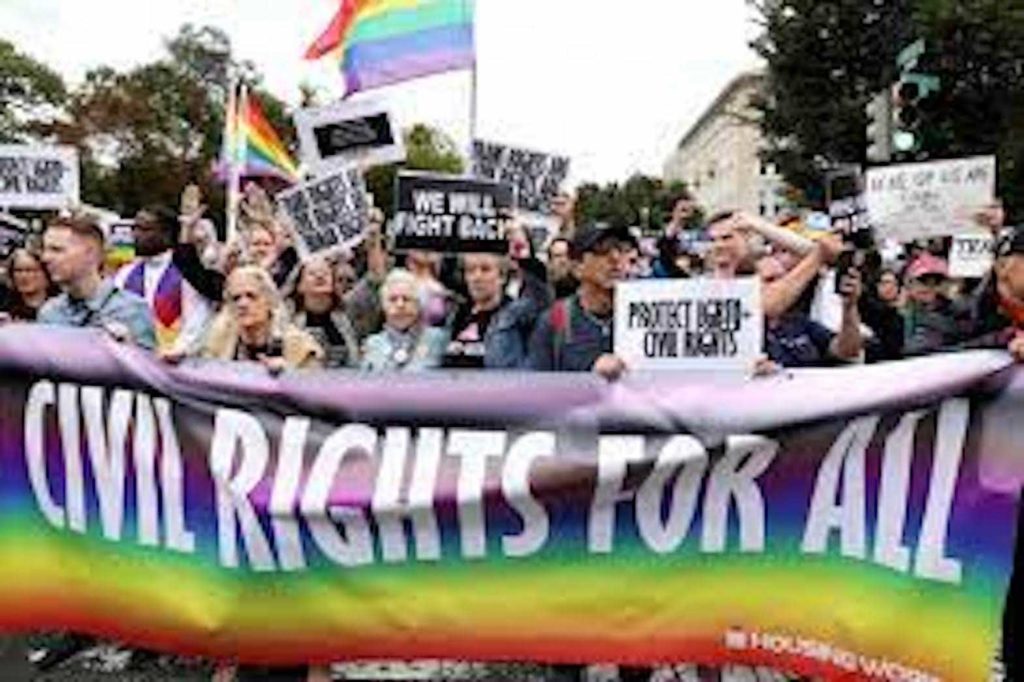New guidance on workplace sexual orientation and gender discrimination

A protest against gender and sexual orientation discrimination. REUTERS
Can an employer fire someone simply for being gay or transgender?
No, according to the U.S. Supreme Court in its landmark decision in Bostock v Clayton County. Title VII of the Civil Rights Act of 1964 prohibits discrimination in the workplace on the basis of race, color, religion, sex, or national origin.
“An employer who fires an individual for being homosexual or transgender fires that person for traits or actions it would not have questioned in members of a different sex. Sex plays a necessary and undisguisable role in the decision, exactly what Title VII forbids.”
The high court reasoned that it is impossible to discriminate against a person for being homosexual or transgender without discriminating against that individual based on sex. By discriminating against homosexuals, the employer intentionally penalizes men for being attracted to men, and women for being attracted to women. By discriminating against transgender persons, the employer unavoidably discriminates against persons with one sex identified at birth and another today.
Since the Bostock ruling, the Equal Employment Opportunity Commission (EEOC) has created guidelines in understanding the laws on sexual orientation and gender identity discrimination. Below are some of the important highlights:
- An employer covered by Title VII cannot fire, refuse to hire, demote, discipline, deny benefits or discriminate in any way against an employee due to their sexual orientation or gender identity.
- An employer cannot fire, refuse to hire, take assignments away, or discriminate in any way against an employee because customers would prefer to work with people who have a different sexual orientation or gender identity. Employers also are not allowed to segregate employees based on actual or perceived customer preferences. (For example, it would be discriminatory to keep LGBTQ+ employees out of public-facing positions, or to direct these employees toward certain stores or geographic areas.)
- Whether or not an employer knows an employee’s sexual orientation or gender identity, employers cannot discriminate against an employee because the employee acts or appears in ways that do not conform to stereotypes about the way men or women are expected to behave
- An employer cannot require a transgender employee to dress in accordance with the employee’s sex assigned at birth. Prohibiting a transgender person from dressing or presenting consistent with that person’s gender identity would constitute sex discrimination.
- Employers may not deny an employee equal access to a bathroom, locker room, or shower that corresponds to the employee’s gender identity. If an employer has separate bathrooms, locker rooms, or showers for men and women, all men (including transgender men) should be allowed to use the men’s facilities and all women (including transgender women) should be allowed to use the women’s facilities.
- Intentional use of pronouns or names that are inconsistent with an individual’s gender identity may be unlawful harassment. Although accidental misuse of a transgender employee’s preferred name and pronouns does not violate Title VII, intentionally and repeatedly using the wrong name and pronouns to refer to a transgender employee could contribute to an unlawful hostile work environment.
- Non-LGBTQ+ job applicants and employees are also protected against sexual orientation and gender identity discrimination. Employers are not allowed to discriminate against job applicants or employees because the applicants or employees are, for example, straight or cisgender (someone whose gender identity corresponds with the sex assigned at birth).
The Law Offices of C. Joe Sayas, Jr. welcomes inquiries about this topic. All inquiries are confidential and at no-cost. You can contact the office at (818) 291-0088 or visit www.joesayaslaw.com. [For more than 25 years, C. Joe Sayas, Jr., Esq. successfully recovered wages and other monetary damages for thousands of employees and consumers. He was named Top Labor & Employment Attorney in California by the Daily Journal, consistently selected as Super Lawyerby the Los Angeles Magazine, and is a past Presidential Awardee for Outstanding Filipino Overseas.]

